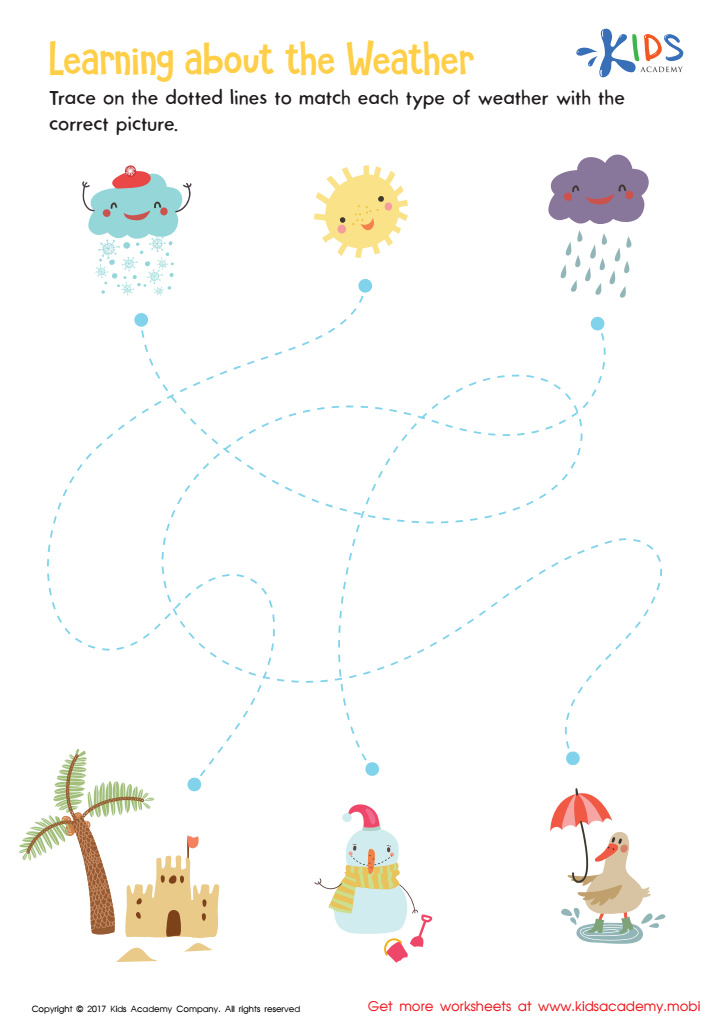Vocabulary development Science Worksheets for Ages 4-5
6 filtered results
-
From - To
Explore our engaging Vocabulary Development Science Worksheets designed specifically for children aged 4-5! These worksheets aim to enhance your preschooler's language skills while introducing them to exciting scientific concepts. Our interactive exercises encourage young learners to expand their vocabulary through fun activities like matching, labeling, and simple word puzzles. With vibrant illustrations and age-appropriate content, every worksheet is crafted to capture your child's interest and inspire a love for learning. Support your child’s developmental journey by helping them make connections between words and the world around them. Discover the perfect blend of education and fun at Kids Academy!
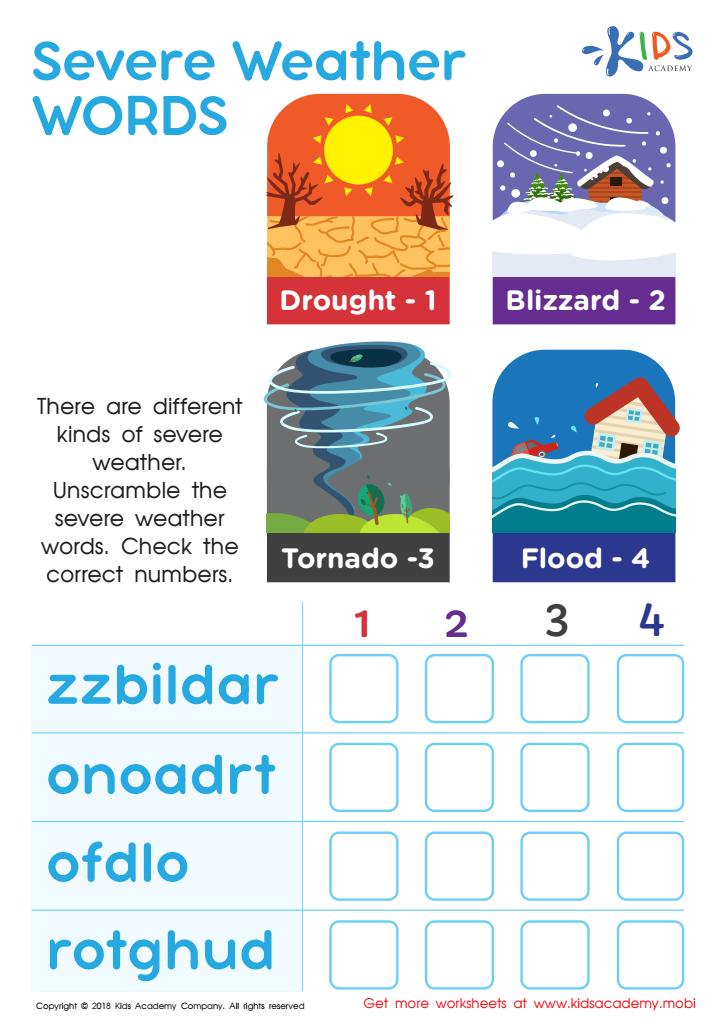

Severe Weather Words Worksheet
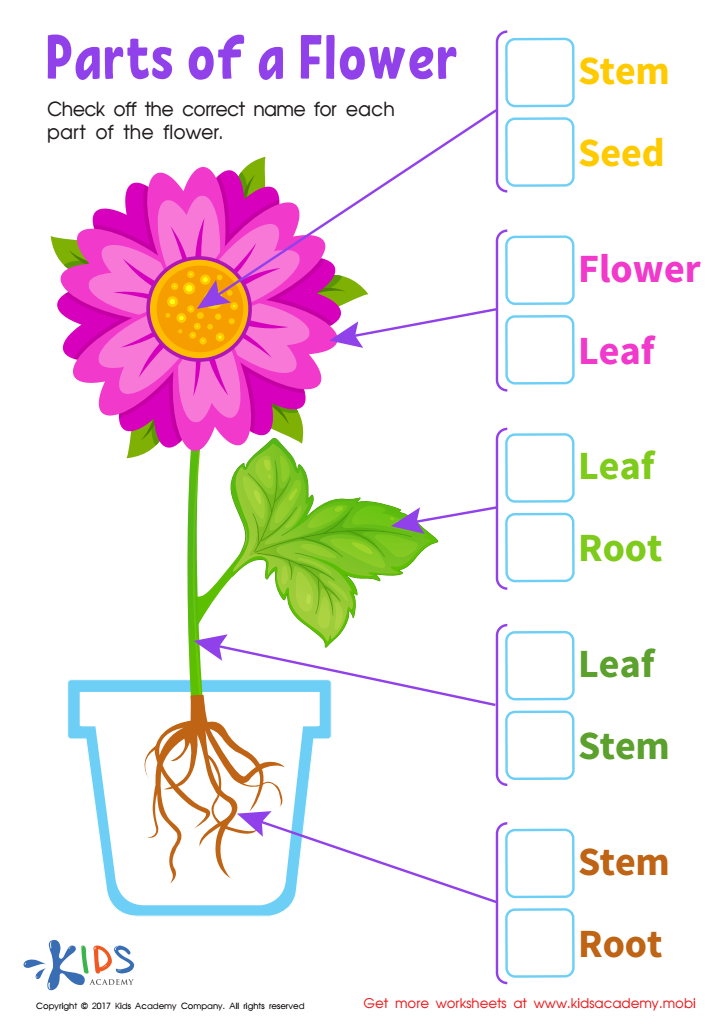

Parts Flower Printable
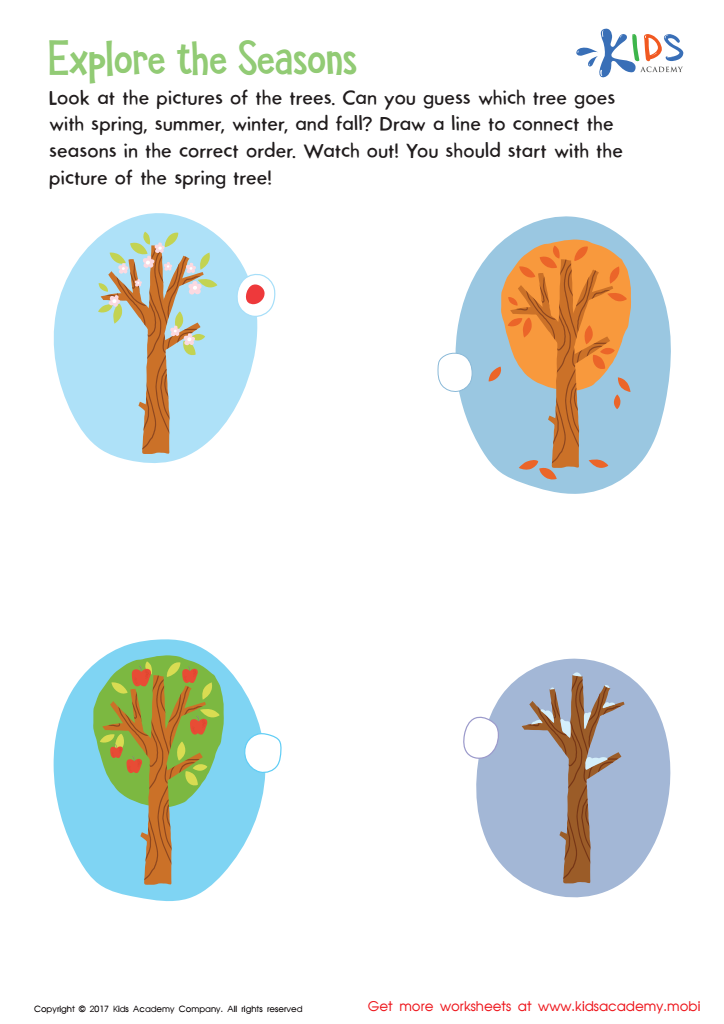

Explore the Seasons Worksheet
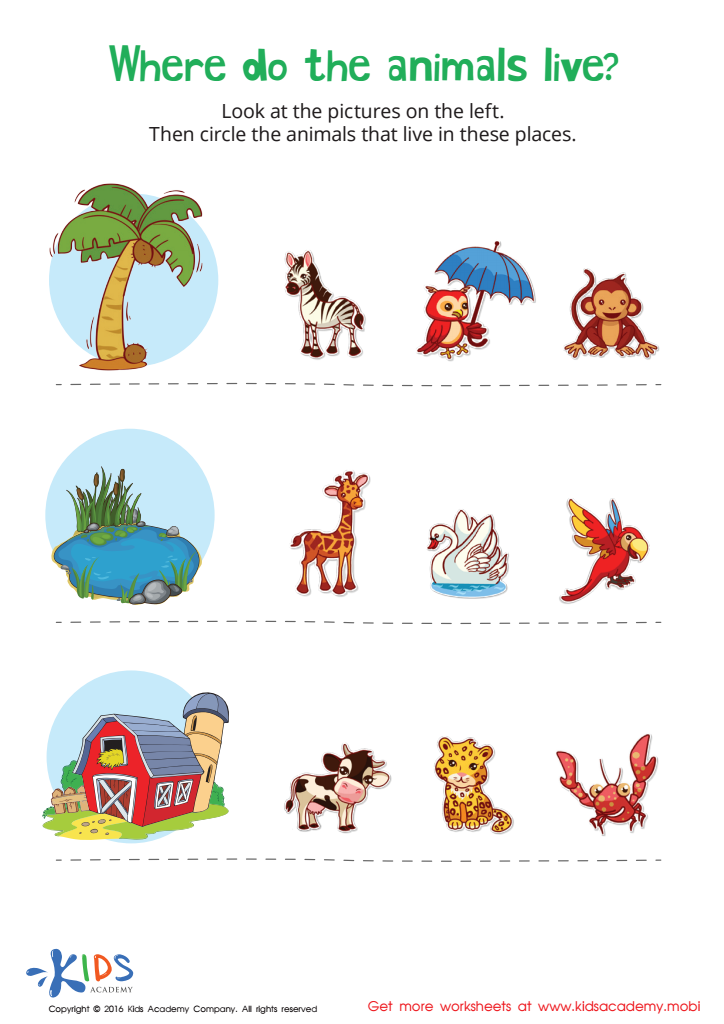

Where Animals Live Worksheet
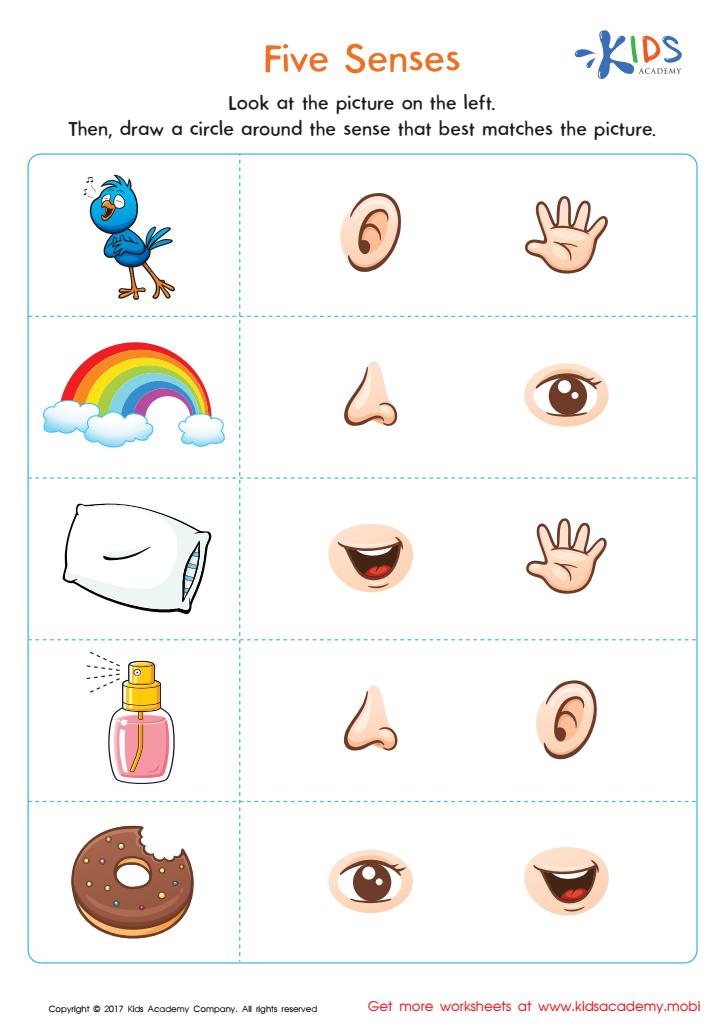

Five Senses Printable
Vocabulary development in early childhood is crucial for several reasons, especially in the realms of language, literacy, and cognitive growth. For children aged 4-5, a rich vocabulary enhances their communication skills, allowing them to express thoughts and emotions more effectively. This age is pivotal for language acquisition, making it an ideal time for parents and teachers to engage in vocabulary-building activities.
Research shows that a strong vocabulary in early childhood is correlated with reading success later on. Children who possess varied words can better understand what they read and can make connections between ideas, leading to improved comprehension skills. Additionally, vocabulary development is linked to academic performance across all subjects, as well-rounded language skills are fundamental for learning and critical thinking.
Introducing science vocabulary at this age not only fosters an interest in the subject but also lays the groundwork for future inquiry and exploration. Through hands-on activities, discussions, and storytelling, children can learn scientific concepts while expanding their vocabularies. Overall, prioritizing vocabulary development in the context of science creates a comprehensive learning environment that nurtures curiosity, creativity, and lifelong learning. Parents and teachers can thus play a vital role in shaping a child's educational journey.

 Assign to My Students
Assign to My Students

